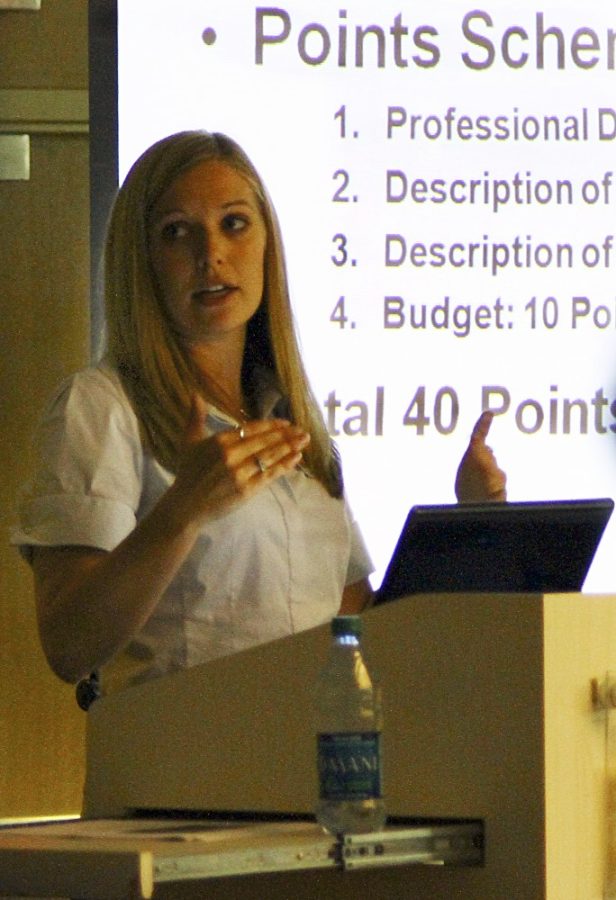This year, GPSC expects to put $150,000 in travel grants up for grabs. On Tuesday, UA graduate and professional students gathered to find out how to get their share.
The Graduate and Professional Student Council hosted its travel grant information session Tuesday and will have another today from 2 to 4 p.m in the Kiva Room of the Student Union Memorial Center to help constituents present research at or attend academic or professional conferences.
Attendees were given information about travel grant eligibility, the scope of funding and how to complete the full travel grant application. The travel grants are scored “pretty competitively” and “require some effort and some thought,” said Lynsey Miller, the GPSC travel grants director and a graduate student studying public administration, government and public policy.
GPSC expects to award about $150,000 total in travel grants, and the travel grants evaluation committee awards up to $500 per student. Last year, 550 students applied for grants and a total of $145,000 was awarded. The council only awards for the amount applied for and does not award partial funding. Applicants are eligible to receive one travel grant per fiscal year. However, a student may apply as many times as they want until granted an award.
For a graduate or professional student to be eligible to receive a travel grant, they must be continuously enrolled as a student in a UA degree program through the term in which the student applies for the grant. The student must be in good academic standing with a 3.0 minimum grade point average. Group applications are not allowed, and students attending the same event must apply separately for funding.
Applications can only be submitted for travel that will begin no later than six months after the travel grant deadline, or which began within one month prior to the deadline. There are six grant rounds — Aug. 1, Oct. 1, Dec. 1, Feb. 1, April 1 and June 1 by 5 p.m. Last academic year, October and April had the greatest number of applicants, and Miller asked that constituents planning to travel during those months apply “as soon as possible.”
The application includes an online information form, student statement, an “abstract” for presenters, an anticipated budget, a letter of recommendation from a faculty member and a travel authorization form submitted to the applicant’s school or department. The application must describe the conference, the research being presented or performed and how the conference would benefit one’s academic or professional development.
In addition, the application must describe how the applicant attempted or managed to secure other sources of funding. Miller said the GPSC “highly encourages and recommends” that applicants look for funding from their departments or other sources, because the travel grant does not guarantee funding for before or during travel.
Two judges who are past travel grant awardees evaluate each application. The applications are judged on a points system, totaling 80 points, and in August the “cutoff score” was 76. High scoring applicants provided specific details about the conference’s benefits, according to Miller.
“This means you can only miss four points,” Miller said. “It is extremely helpful if you review the rubric before writing your application.”
Travel grants are awarded from funds provided by the Graduate College and Student Affairs fees, according to Miller, and the GPSC does not fundraise internally in order to fund travel grants.









